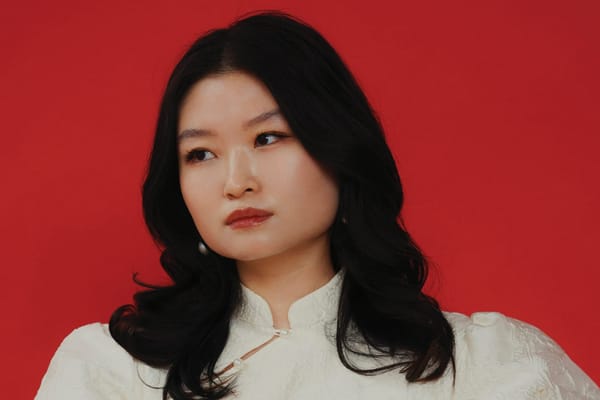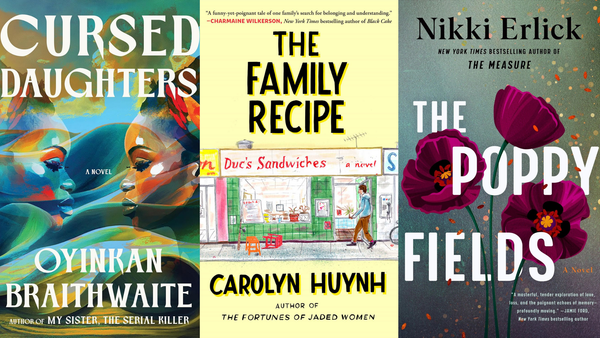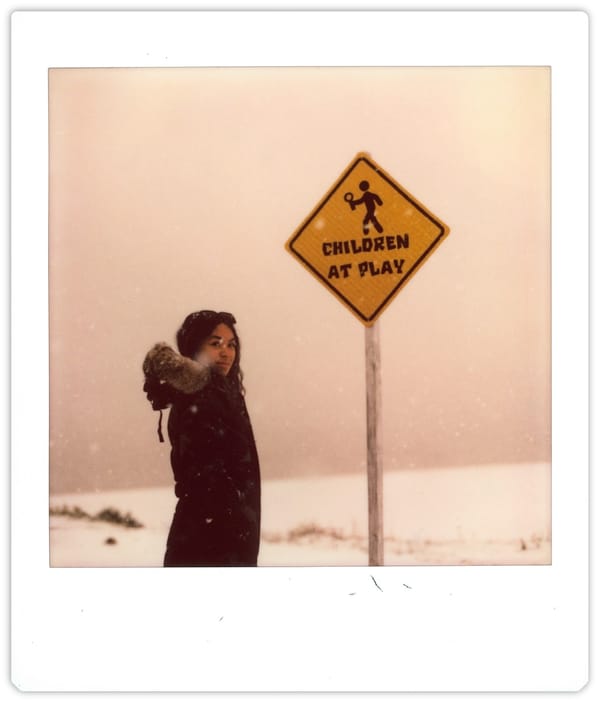Unmasking poet Ari B. Cofer
As a renowned writer, Ari B. Cofer knows she can rely on the privilege of being seen and heard only in certain settings. And even if she platforms her vulnerabilities and cries for safety toward the horrors of being Black in America, she still feels scared sometimes.
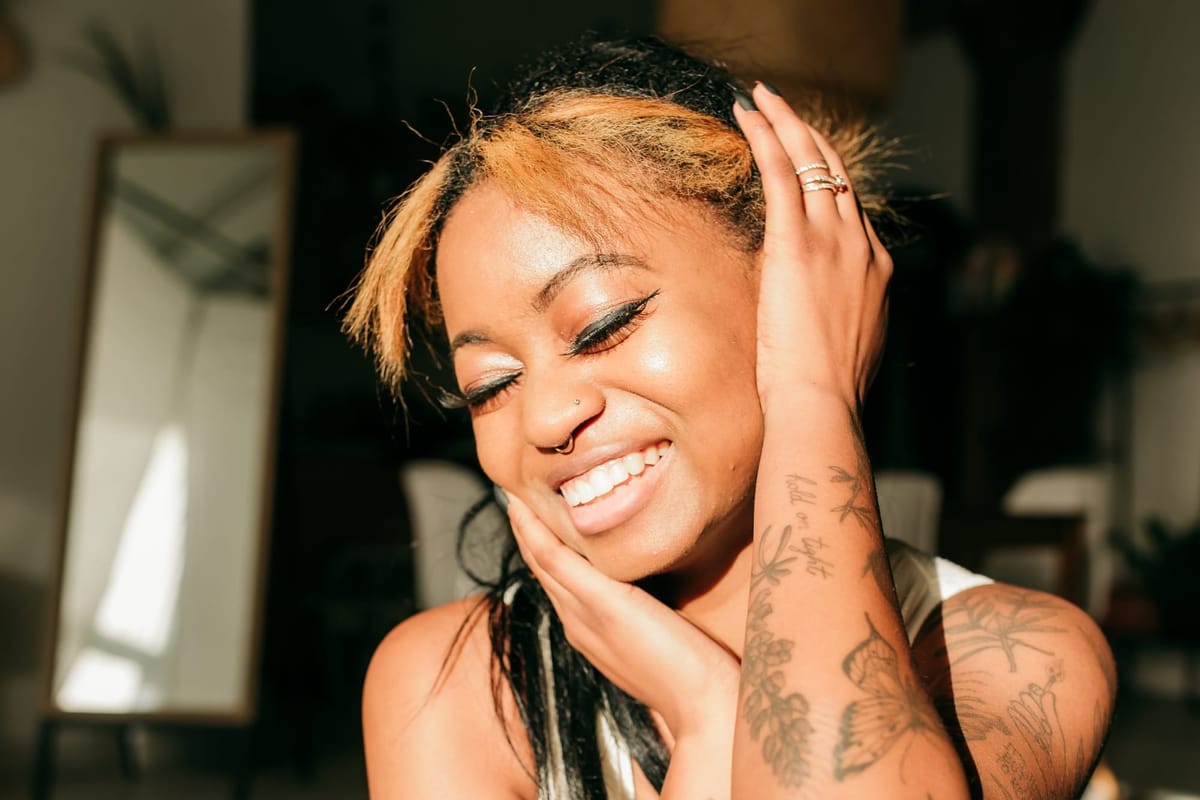
Welcome to “Unmasking,” a column dedicated to documenting artists’ lives behind their crafts. Telling their stories with a different lens, “Unmasking” has a more vulnerable and personal approach. This is a space more centered on their being than their doing: when they are just listening, studying, rehearsing, encouraging and living.
Over the years, my work as a writer has been a constant sonic disruption of conventional etiquette. So naturally, I began to wonder how I could break the unspoken amongst performers, storytellers and other creators. “Unmasking” came after someone once asked me: “Who are you without your masks?”
“Unmasking” will answer and start that dialogue. We will find the intersections of the professional and personal, someone’s public persona and access to their privacy. We will touch on our relationships with attention versus representation, desire versus prominence. Most importantly, I want to humanize our selfhood, community and collective liberation.
This column is an anthem of how we can recognize the similarities and differences of our individual and shared experiences in the arts, media and entertainment world, and how one of the ways we can truly learn to hold each other in these landscapes is through unmasking and witnessing.
We begin with celebrated poet and author Ari B. Cofer.
Content warning: This article contains mentions of sexual assault, depression, gun violence, racism and other trauma experienced by Black Americans.
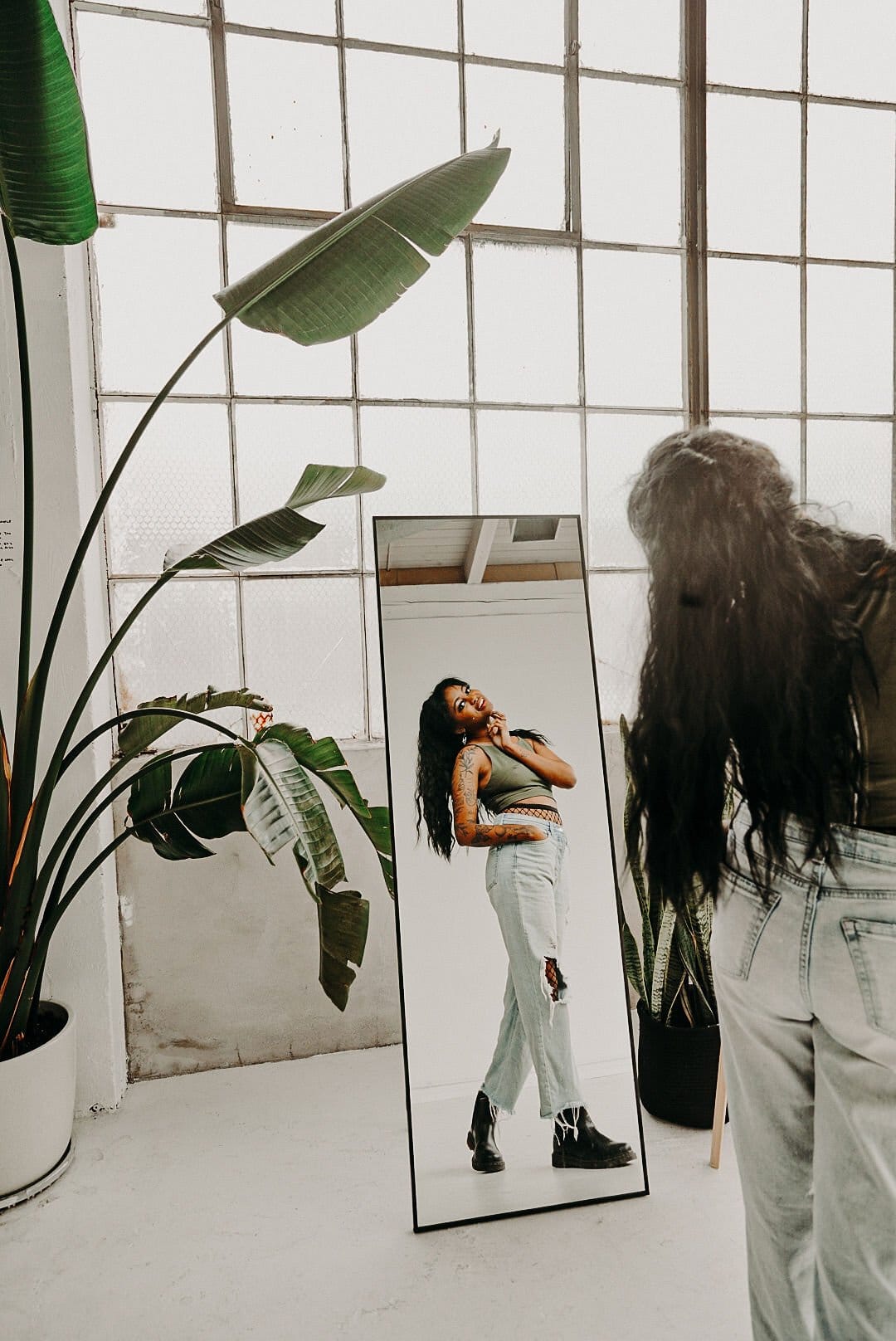
The world thinks trauma has turned me into a work of art.
Excerpt from “Paper Girl and the Knives that Made Her”
Cofer was only 23 when she published her first collection, “Paper Girl and the Knives that Made Her,” a cutthroat, visual narrative of mental health conditions that borrowed from her own life growing up as a Black woman in America surrounded by trauma, violence and despair. A year later, she came back and published a beautifully sober book, “Unfold,” which unpacked her recovery through the art of poetry.
Her poetry collections are full of intense riffs taking the readers through highs and lows — a classic storyline concerning some of the most difficult realities we navigate as individuals and artists. She writes with a precision that I wanted to draw as close as possible to this poet who named some similar things in me.
Who is Ari B. Cofer?
In her recent book “Unfold,” Cofer introduces herself through poetry, but she says she’s still figuring that out herself.
“When I get close to thinking I know, that’s usually an indicator that I still have some work to do,” she said. “I know who I want to be, but sometimes answering that question feels a bit superficial, as I’ll say I want to be a poet, or a good partner, or someone who can keep their houseplants alive.”
She added, “I can better say who I currently know myself to be, which is just a person trying to believe in the nuance of happiness … I’m a poet in all definitions — feeling everything deeply, looking for the stories within them.”
Cofer’s collections repeat references to “home” in pieces like “Two Truths and a Lie” and “Homecoming.” She grew up in Texas and lived in Oklahoma, then moved to the Pacific Northwest and lived in Washington state.
She mentions she struggles with which place to call her hometown. She says Oklahoma and Texas shaped who she is, but those places also hold her past trauma. It wasn’t until she moved to Washington, she says, that she was able to unpack what she went through in each place. And it’s in Washington where she finished her books.
“The South will always be home because it made me who I am, but Washington is the first place that feels like home because it is where I’ve found myself,” she said. “My writing has forever changed since being here.”
On debut, visibility and trauma as art

I'll never be a sister, only suspect
I will never be human only black, black, black
... I will remind myself blackness is what makes me whole
my black is the same color as the gun they shoot us with
... my black is here, here, here.
Excerpt from “Paper Girl and the Knives that Made Her.”
Cofer unveiled her stories of survival as a teenager going through depression, abuse and casual hopelessness, in her debut book, “Paper Girl,” which shed light on mental health.
“It’s cliche, but I hope my readers can recognize themselves in my work and know they’re not alone,” Cofer said.
Quickly after her first publication, she discovered how her poems had changed her own life and other people’s lives as well.
“Ultimately, the true reward comes from the outreach and conversations I’ve had with people who read my work and say that it’s the first time they’ve been able to put words to their feelings, or that my work saved their life. Now, we all get to heal together,” she said.
With this positive reception, she built a following on social media. At the start, it made her uncomfortable.
“The wild nature of the algorithm put me in a bad headspace, and I was starting to equate my worth with my engagement and following,” she said.
But given enough time and space to reflect, she feels less concerned about constantly pleasing an audience and instead focuses on what she likes to do now: create art.
Cofer’s works are also unafraid to dig into the history of violence. Growing up in predominantly white spaces between Texas and Oklahoma, she saw many of her peers die as a result of gun violence toward the Black community in the United States.
“I have my own stories, and so do my Black friends and family,” she said. “I have a voice and a platform. I decided it was time to use it. I lose followers whenever I speak about Black experiences or the racism in my country. I couldn’t care less. It’s part of my story, and I’m no longer afraid to tell it.”
Cofer opened up about her time in the slam poetry scene and how that was a pivotal point of her career.
“I was finally in a space where other Black people and people of color were performing about the ways they’ve been harmed — and continue to be harmed — by this country, which gave me the space to begin the work on myself to untangle years of internalized racism and suppressed experiences of racism,” she said.
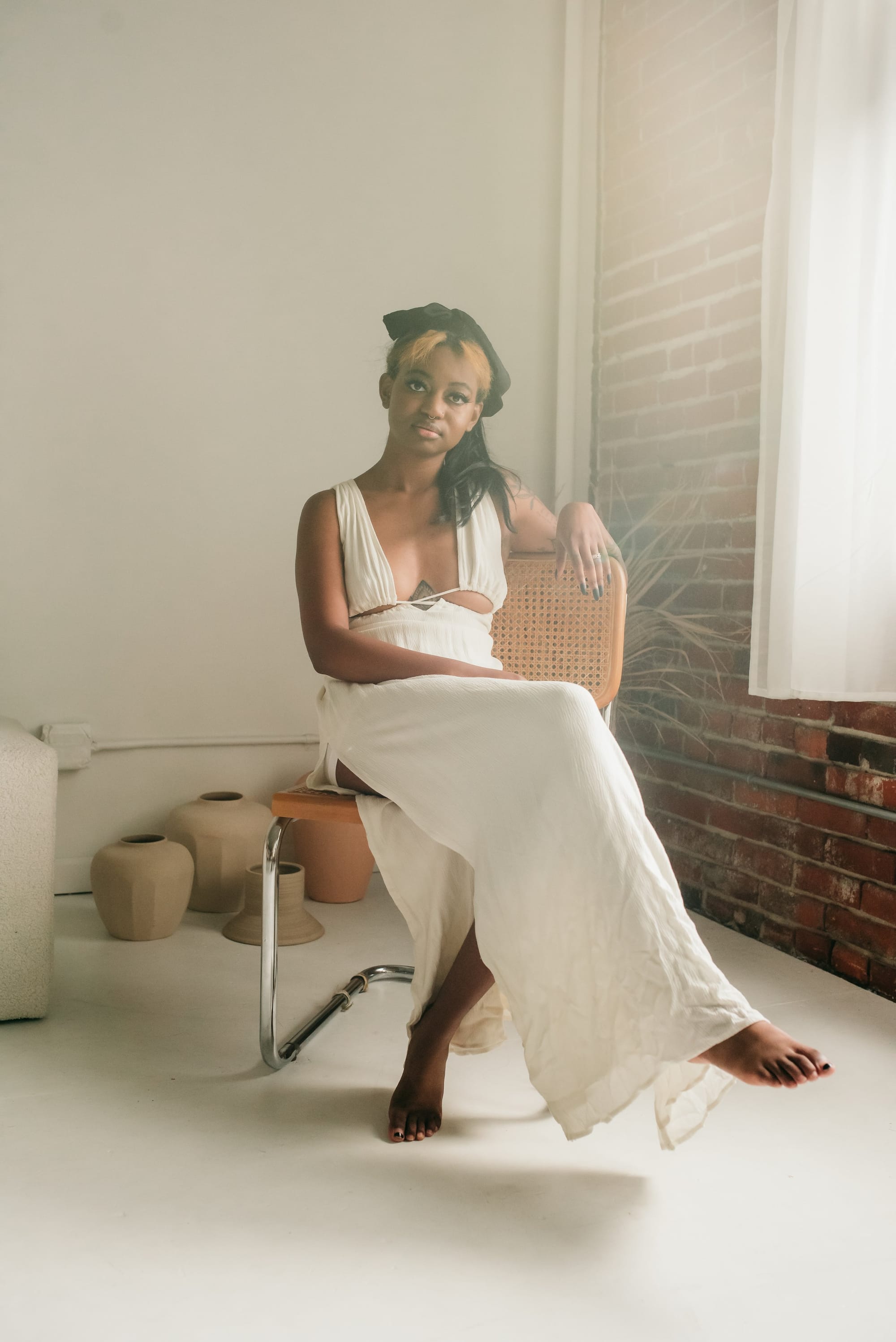
This is to say I am scared of cops
afraid one day i'll get a call
saying my husband's melanin was too
dark for the cops to see where they were.
Excerpt from “Paper Girl and the Knives that Made Her.”
As a renowned writer, Cofer knows she can rely on the privilege of being seen and heard only in certain settings. And even if she platforms her vulnerabilities and cries for safety toward the horrors of being Black in America, she still feels scared sometimes.
“Living as Black in America is to be vulnerable,” she said, sounding almost hopeful. “By writing about it and making my vulnerabilities in this area more visible, it almost feels like we are more visible, more protected, as if someone else out there reading our story is another set of eyes watching over us, listening to us, praying for us to get home safe.”
“Paper Girl” and “Unfold” concern the most terrifying realities, those involving ourselves and the people we love. At the far end of finishing both collections, I was struck by how Cofer narrated her experiences of rape and sexual assault. I browsed back from “Paper Girl” to “Unfold” and read some pieces over and over again trying to remember what changed, which words she made sharp and which she made soft.
She told me, “The way I talk about sexual assault in ‘Paper Girl’ versus how I approach it in ‘Unfold’ is vastly different, but I think both were necessary for me to process and begin the healing process.”
Cofer’s voice is at once singular and various.
“After being published, people saw me as Ari B. Cofer, the poet, but I was left wondering, ‘Well, who am I? How do I see myself? How do I want people to see me?” a self-inquiry from someone who reconciles with her realities of invisibility as a Black woman versus her visibility as an artist. But despite this, Cofer offers generous storytelling.
“I think part of being a writer is knowing you’ll be seen. Part of being a writer is accepting that I will still be okay with myself no matter how I am seen,” she said.
Recovery, advice and visions of the future
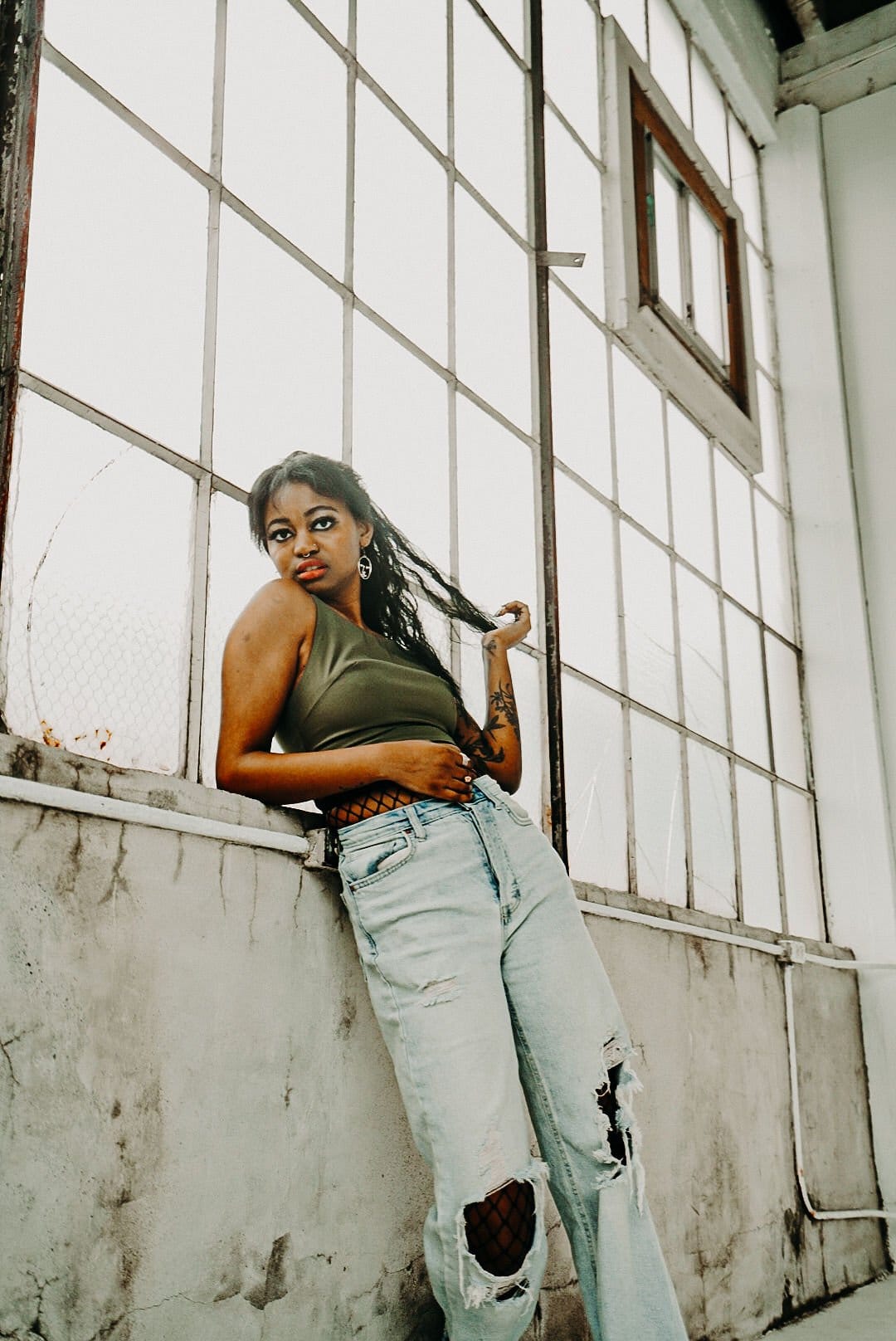
Mom, everything hurts and you're the only person I ever want to tell
I am trying to look for myself and keep find you
Do you have time to talk?
Excerpt from “Unfold.”
In the second installment of Cofer’s book “Unfold,” she writes to her mother about feelings she’s wanted to explore throughout her lifetime. This piece captures the sobering, almost clean revelations of her recovery. That even if some isolation endures, the space between them collapses too.
And the cliche of being saved by writing is true in her case. “Unfold” became her refuge for healing. Today, she still roams across grace and patience.
“I used to feel like I had to be a loud advocate, write, and share all the time until I realized it was damaging me more than it was helping others,” she said.
The foundational experience of being othered often stays with us for the rest of our lives. But I wanted to know from Cofer, with the accolades and being published twice at this point if she felt seen as a poet and heard as herself.
“I’m pretty happy to say that I feel seen as a poet and heard as Ari B. Cofer. A lot of that came from finding my voice in my writing, which took years and is still evolving,” she said.
Until the end, Cofer shared with me her remarkably humbling experience to be seen and known by other people, to unmask and see what’s on the other end despite fear.
“I wrote these books for my younger self at the end of the day. These are the books I wish they could’ve read,” she said. “I am the person and writer they would be so proud to see and know. I’m always going to write for myself first.”
She added, “It’s such a blessing and an honor that it resonates with others, too. I’ll never take that for granted.”
And, as for me, I am grateful for Cofer’s honesty and company, the words she presses down that I can carry, that you can carry as we all go figure it out onwards.
To support Ari B. Cofer, get your copies of "Paper Girl and the Knives that Made Her" and "Unfold."


